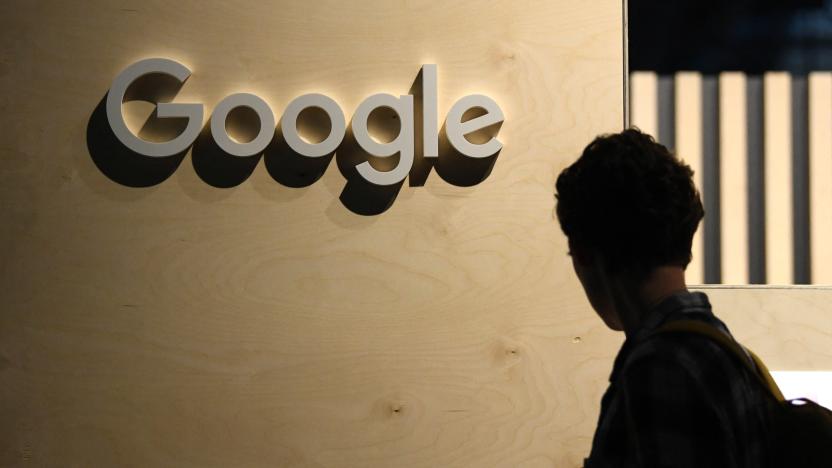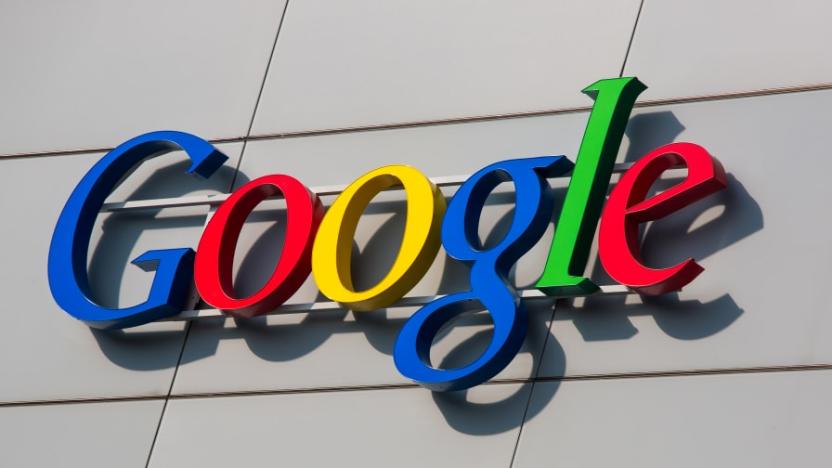SEO
Latest

An old SEO scam has a new AI-generated face
Scammers are using AI tools to create fake law firms used for link-building SEO scams.

Google is changing its search results to weed out SEO spam
Amid complaints about its search results declining in quality, Google is tweaking its algorithms to do a better job of weeding out spammy or automated content. The company says the ranking updates, arriving in May, will “keep the lowest-quality content out of search.”

Google will downrank click-farm garbage and aggregators to improve search results
The company is aiming to surface more helpful content and product reviews.

Court claims Google lost right to pull site from search results
You'd think that Google's search results would be protected in the US by free speech rights. Google gets to say what what shows up on its own site, right? However, one Florida court thinks differently. It recently determined that Google wasn't protected by the Constitution's First Amendment when it pulled search engine optimization firm E-ventures' website from its index. Google supposedly crossed the line when it claimed E-ventures was violating its policies by posting "pure spam" -- this wasn't strictly true, the court argued, and was driven by "anti-competitive motives" rather than self-expression.

Google needs your help improving its search engine rankings
Despite the fact that Google itself created the algorithms that drive its search rankings, it would appear that the Mountain View-based company could use a bit of assistance in the SEO department. According to a recent job listing posted to its Careers portal, Google's in the market for a new SEO manager at its California headquarters. The "Program Manager, Search Engine Optimization" position is marketing-centric requiring any qualified candidate to "work with cross-functional teams across Marketing, Sales, Product Development, Engineering and more to help drive organic traffic and business growth." You'll need a BA/BS in Computer Science or Engineering, four years of website development experience, another two years of direct SEO experience and a healthy sense of irony if you want to apply.

Google's gunning for web spammers, bans us from mentioning Bieber
Google's changing its search algorithm to punish sites that emphasize search-engine optimization over quality. Mountain View's data centers will exclude sites that offer no useful content, have articles written in keyword-sprinkled gibberish or only link to sites within a cluster. If the computers find it, the site's pagerank will be demoted, with the company expecting to affect around three percent of all English language queries when it goes live later this week. The company isn't providing more details (lest it help those trying to game the system), so just get all of those gratuitous Justin Bieber references out of your system before Friday, okay?

Google explains how it searches the internet in under half a second, if you can find the video
Ever wonder how Google manages to search the entire web and return results in half a second? Well, RobertvH from Munich did, and Mountain View's head of web-spam, Matt Cutts, talks you through it in the above YouTube video. The short answer? Lots of backend firepower and, you know, a few years in the search game. If you remember the Google dance, Cutts explains what caused that, before going on to give a good idea about how today's version of the site does what it does. If you're thinking this all sounds a bit too much like SEO 101, you'd be half-way right, but as Matt's delivery is so engaging, we're def hoping there'll be a follow up.

NYT uncovers the tawdry, seedy tale of the SEO games of J.C. Penney
The New York Times has run an incredibly detailed piece about a feat of Google search engine gaming which seems to have been done by or for JC Penney. We won't bore you with SEO basics -- we're pretty sure you've got those down already -- but suffice to say that The Times noticed that the retailer was at the top of Google's search results for many more terms than seemed possible or natural, so they started to do some digging. What they found was that thousands of links had been placed on what were essentially spam sites all over the web, resulting in the retailer ruling the Google juice for terms such as "little black dress," and even super generic ones like "rugs" and "bedding." This is one of the dreaded kinds of 'black hat' optimization that Google frowns upon, because it's so obviously cheating, and it's punishable by a massive sinking of the offending site's ranking in results (which is, of course, not the desired effect). JC Penney unsurprisingly denies knowing anything about it, and no evidence exists to suggest it was directly involved, so on Wednesday, Google began 'corrective action' to bring Penney's results back to planet earth. One example -- before the action was taken, JC Penney held the number one spot for the search term 'living room furniture,' and after it stood at number 68 -- is enough to show the awesome power Google holds over the results it delivers, but the story also serves to show how truly broken search is, as well as Google's seeming nonchalance about the issue. Hit up the source link for the full story.

Google under fire for promoting own content ahead of competing websites
This isn't exactly a new allegation, but the idea's spreading fast: Google is tuning search results to favor itself, and perhaps that's not entirely fair. Though the European Union is already investigating Google for potential antitrust violations, a recent article in the Wall Street Journal cites several US businesses that aren't too happy themselves, claiming that Google Places, Product Search and the like took a big chomp out of their traffic. Google's defense, as usual, rests on its secret algorithms, which it claims aren't rigged in any way, adding that the prominent placement of location- and product-based search results are just a way to get users quicker answers to their queries. If you type in "day spa nyc," you're looking for some catered suggestions, right? And what of those who argue differently? Well, obviously they're in league with Microsoft.

Report warns of the increased use of SEO Poisoning to spread malware
You'll undoubtedly be excited to know that the Internet security firm Websense has recently released its annual Threat Report. Other than trying to scare you into buying every single product the company has ever released, the paper highlights the growing problem of Black Hat SEO, or SEO Poisoning, which (if done right) sends malware-ridden links closer to the top of your Google search results. According to Network World, some 22.4 percent of Google searches performed since June produced malicious URLs (such as fake antivirus sites or malware downloads) as part of the top 100 search results, as opposed to 13.7 percent in the second half of 2009. It seems that the old model of cyber-attacks, involving peer-to-peer virus infection, is becoming increasingly ineffective as anti-virus companies step up their game, causing nogoodniks to rely on search results, websites, and zero-day attacks. That said, there is a silver lining: as Network World goes on to explain, these days you are actually less likely to get malware from "adult content" sites than in previous years. Or should we say, that's good news for your "friend" or "co-worker."

Google pointer activity monitoring could influence search engine results, probably won't
For the latest development in Google's mad quest for search engine efficacy, the company was granted a patent titled, in the necessarily wordy way that these things are, "System and method for modulating search relevancy using pointer activity monitoring." Essentially, the idea here is that mouse pointer movements can be interpreted to gauge someone's interest, so Google would track the mouse as it moves in and out of predefined regions of a web page, or hovers over certain regions for a predefined period of time. Apparently, the pointer is sort of seen as a surrogate for the eye, telling the search engine provider where your eye is wandering. Of course, there is plenty of math on the back end, where the relevancy of those actions has to be determined. Or something. This baby was filed in 2005, and as far as we know this technology hasn't been implemented, so who knows if it ever will? Check it out for yourself by hitting the source link.

Twidroid acquired by TweetUp, soon to be bundled with new Android phones as Twidroyd
Remember our old friend Twidroid? You know, the app that came out as cream of the crop in our little Android Twitter client round-up? Things are about to get interesting again -- following today's acquisition of said app, SEO firm TweetUp has renamed its latest trophy to Twidroyd to avoid upsetting a certain Mr. Lucas. The bigger news, though, is that we're told this action-packed app will be preloaded "on millions of upcoming Android phones from five of the leading handset manufacturers." That's a pretty bold statement to make, especially considering it wasn't long ago when Twitter Inc. pushed out its own Android client, but we'll happily accept this freebie anyway.

BP damage control extends to purchasing search terms like 'oil spill' on Google, Yahoo
If you're looking for the latest updates on the Gulf Oil Disaster, you're probably not wondering "how BP is helping," but that hasn't stopped the company from snatching up keywords on various sites. "We have bought search terms on search engines like Google to make it easier for people to find out more about our efforts in the Gulf," BP spokesman Toby Odone told ABC News. We regret to inform ol' Toby that if it cannot manage the oil spill, managing its PR is not going to placate anybody.

Scammers exploit Apple iPad fever
And now we're at the point in the iPad cycle where there's just enough information out there about it that people are interested, but not enough that they can discern credible information from scammers. That's the report of the BBC, which says that "hi-tech" scammers are using iPad-based searches to prey on users and install various types of "rogue security software." The news here isn't necessarily that scammers are out there scamming people (that happens all of the time), but it's that scammers are cashing in on the iPad frenzy to do so. Then again, that's probably not a huge surprise, either: they probably always latch onto whatever the hottest search topics are, and this past week, of course, it was the iPad. In my own personal opinion, these fearmongering reports are the biggest scam of all. Even the BBC is only reporting this based on information from Symantec, and that's S.O.P. for the antivirus company: a) release a report that claims everyone is in danger and that viruses are everywhere, b) get some less-than-tech savvy journalist to believe it, and c) sell copies of your antivirus software and profit. In reality, if you click links only on trusted sites and keep an eye on everything coming in to your Mac, you don't need Symantec to tell you how to be safe. If you install "security software" that you happened to pick up while searching for iPad news, of all things, then you can't be surprised when your system gets compromised.

No payment info, no search weight: Put down your SEO bots
Sharp-eyed Wildefire Walcott has spotted (and we've spent the last few hours checking and verifying it across a number of accounts) that the profiles of Second Life accounts that have no payment information on file are excluded from the new Linden Lab search system. More specifically, if they have publish-on-web checked, their profile is available through the web-service, but it certainly appears as if the search system does not index the contents of their profile (for results, search-weighting purposes, relevance or anything else).

Money for lies. Again.
In your Second Life profile there's a tab called Picks. That's where you put in the places you like the most, or the people you like best, if you care to list any at all. With a limited number of places for Picks, you could be pretty sure that when you browsed someone's profile you'd find a mix of interesting places. Sometimes places that were visually attractive, spectacular or intriguing, or sometimes just because they held emotional or sentimental value to a person. Not for much longer, it seems. Those spots can now be monetized.







